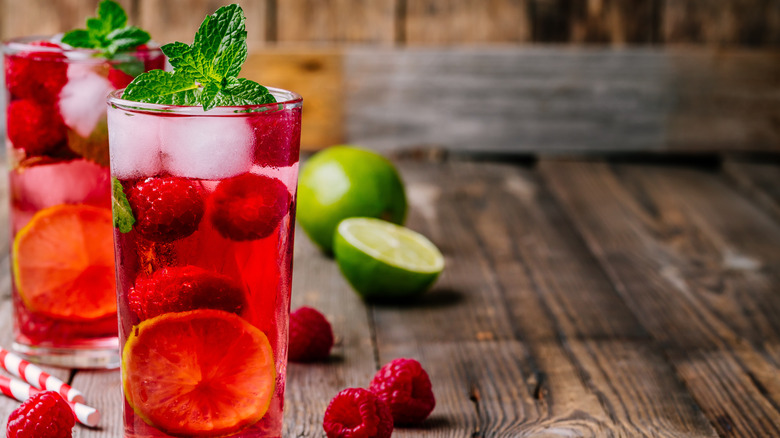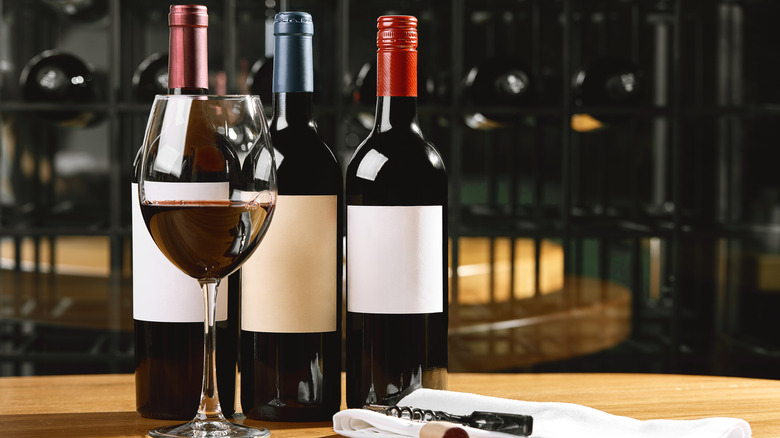Are You Allowed To Drink Alcohol On A Low-Carb Diet?
If you're on a low-carb diet, you might be wondering if you can still drink alcohol without consuming too many carbohydrates. Whether you're on the keto diet or another type of low-carb diet, the goal is to limit your overall daily carb intake, which means that you'll want to either eliminate or cut back on high-carb foods and beverages. This involves limiting your consumption of sugar, refined grains, and starch, among others. But just exactly how much do you have to cut back on? According to EatingWell, a diet is considered low-carb when less than 45% of your daily calories come from carbohydrates.
This is just under the minimum daily recommended carb intake for a standard 2,000-calorie diet, as per Healthline. As a result, you can certainly still drink alcohol on a low-carb diet if you so choose. You just have to be mindful of the number of carbs in any given beverage and try to stay away from extra-sugary cocktails.
How many carbs are in alcoholic drinks?
While many alcoholic drinks tend to be high in carbohydrates, there are still plenty of low-carb beverages you can partake in. That's why it's important to know how many carbs are in different types of alcohol (via Healthline). For instance, beer actually has a fairly high carb content. In fact, a 12-ounce serving of regular beer can contain as much as 12 grams of carbs, since one of its main ingredients is starch. However, wine, light beer, and liquor are all much lower in carbs and can fit into a typical low-carb diet.
As a matter of fact, a single serving of light beer only contains three grams of carbs, while five ounces of red or white wine has around three to four grams. Meanwhile, pure forms of liquor are completely carb-free. That means that you can drink rum, whisky, gin, and vodka without consuming any carbs. It's only when you add sugary mixers that cocktails start to go up in carbs.


